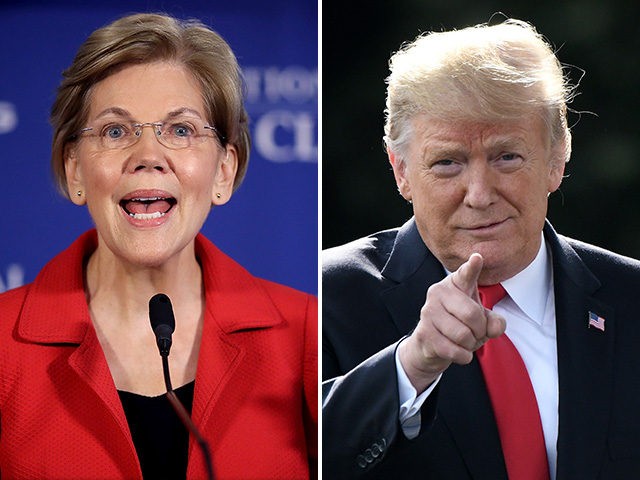After years of taunting from President Donald Trump, Sen. Elizabeth Warren revealed her DNA results this week proving her Native American roots. If it was an effort to take on Trump directly, it didn’t seem to work. The president continued his mocking references to her as “Pocahontas” and she managed to offend Native Americans who felt their heritage was being used as a political prop.
Obama tried another tactic in 2011, holding a midday press conference to show reporters his long-form birth certificate after Trump spent weeks reviving the “birther” controversy claiming the first black president was not born in Hawaii, implying that his presidency was illegitimate.
“We’re not going to be able to solve our problems if we get distracted by sideshows and carnival barkers,” a bemused Obama told reporters.
That approach did little to silence Trump, either. Five years later, he was elected to the presidency after a campaign in which he referred to Mexican immigrants as rapists, called for a ban on Muslim travel to America and referred to inner-city black communities as “hell” and pledging to restore “law and order” to cities like Chicago.
As Democrats gear up for a presidential primary season that’s likely to feature multiple women and people of color, some are saying it’s time for a new approach.
“There’s a lot of data that shows that most Americans believe that Trump is either racist or bad for race relations in this country,” said Harvard University historian Leah Wright Rigueur. “If you already know that, you have to give people something else. It doesn’t mean you stand there and let yourself be bullied, but the way to do this is not to bring yourself to Trump’s level.”
The answer for prospective 2020 candidates, according to some activists, is to present an authentic counterpoint to Trump’s provocations. That’s one reason Warren’s move was problematic to some. It seemed a departure from Massachusetts Democrat’s usual playbook of hammering the president on the issues and largely ignoring his personal attacks. Some understood the impulse, but saw Warren’s response as an unforced error that distracted from her message and her brand.
“The way she chose to fight back seemed out of character for how she’s fought back before,” said DeJuana Thompson, founder of Woke Vote, aimed at turning out young black voters and faith voters. “She usually sticks to the issues; she rarely brings it back to herself.”
Instead of a DNA reveal, Warren could have stood with Native Americans on the issues that matter to them, like the environment or voter suppression, said Aimee Allison, president of Democracy in Color.
“A conversation centering on Native people, about their identity and their issues, that would’ve been inspiring,” Allison said. “That is the way to cut through and dissipate the hatred that is poisoning our society, building connection with people.”
Allison pointed to Texas U.S. Senate Democratic candidate Beto O’Rourke as someone effectively appealing to a broader electorate.
“He speaks in solidarity with black people and Latinos, and shows a very different way of being a white Democrat,” she said. “Whether he wins or loses, he’s an example of people who want to lead and not fall victim of this racial playbook. There’s no winning with that, but there is a way to embrace racial identity that helps build the democracy we want.”
___
Whack is The Associated Press’ national writer on race and ethnicity. Follow her work on Twitter at http://www.twitter.com/emarvelous.

COMMENTS
Please let us know if you're having issues with commenting.